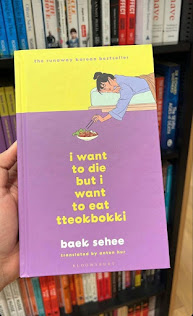Toshikazu Kawaguchi's heartwarming novel, "Before the Coffee Gets Cold," is more than just a story about a cup of coffee. It's a whimsical exploration of regret, missed opportunities, and the transformative power of revisiting the past. Set in a small Tokyo cafe, the narrative revolves around a unique phenomenon: a single seat that allows customers to travel back in time, albeit with some strict and intriguing rules.
The cafe itself is an unassuming place, yet it holds a secret. Tucked away in a quiet corner is a specific seat imbued with the power of time travel. However, there are limitations. Travelers can only return to a single day in their past, and the journey ends once the coffee in their cup cools. Additionally, they cannot change anything in the past, only observe and perhaps find some closure.
The story unfolds through a series of interconnected chapters, each focusing on a different customer who chooses to take the time-traveling journey. We meet a woman yearning to see her deceased husband one last time, a musician seeking a final performance with his estranged bandmate, and a couple grappling with a misunderstanding that fractured their relationship.
The characters in "Before the Coffee Gets Cold" are remarkably relatable. Their stories resonate with the universal human experience of loss, regret, and the yearning to undo past mistakes. Even though they cannot alter the course of history, the opportunity to revisit the past offers a chance for healing, forgiveness, and a deeper understanding of themselves and those they love.
A key theme in the novella is the concept of acceptance. While time travel allows for a glimpse of the past, it doesn't offer the ability to rewrite history. This limitation forces the characters to confront their regrets and find peace with what cannot be changed.
Despite the inherent melancholy surrounding the characters' situations, the story ultimately offers a message of hope and acceptance. The act of revisiting the past, even with its limitations, can lead to a sense of closure and a renewed appreciation for the present.
"Before the Coffee Gets Cold" is a delightful read that blends magical realism with heartwarming human stories. The cafe setting adds a quirky charm, and the time travel element provides a captivating hook. However, it's the exploration of human emotions and the characters' journeys of self-discovery that truly resonate with readers.
This short and thought-provoking novel is a perfect read for anyone wishing they could go back in time and relive a moment, mend a broken relationship, or simply gain a new perspective on a past experience. It's a reminder that sometimes, the most profound changes happen within ourselves, not by altering the past, but by learning to live more fully in the present.










